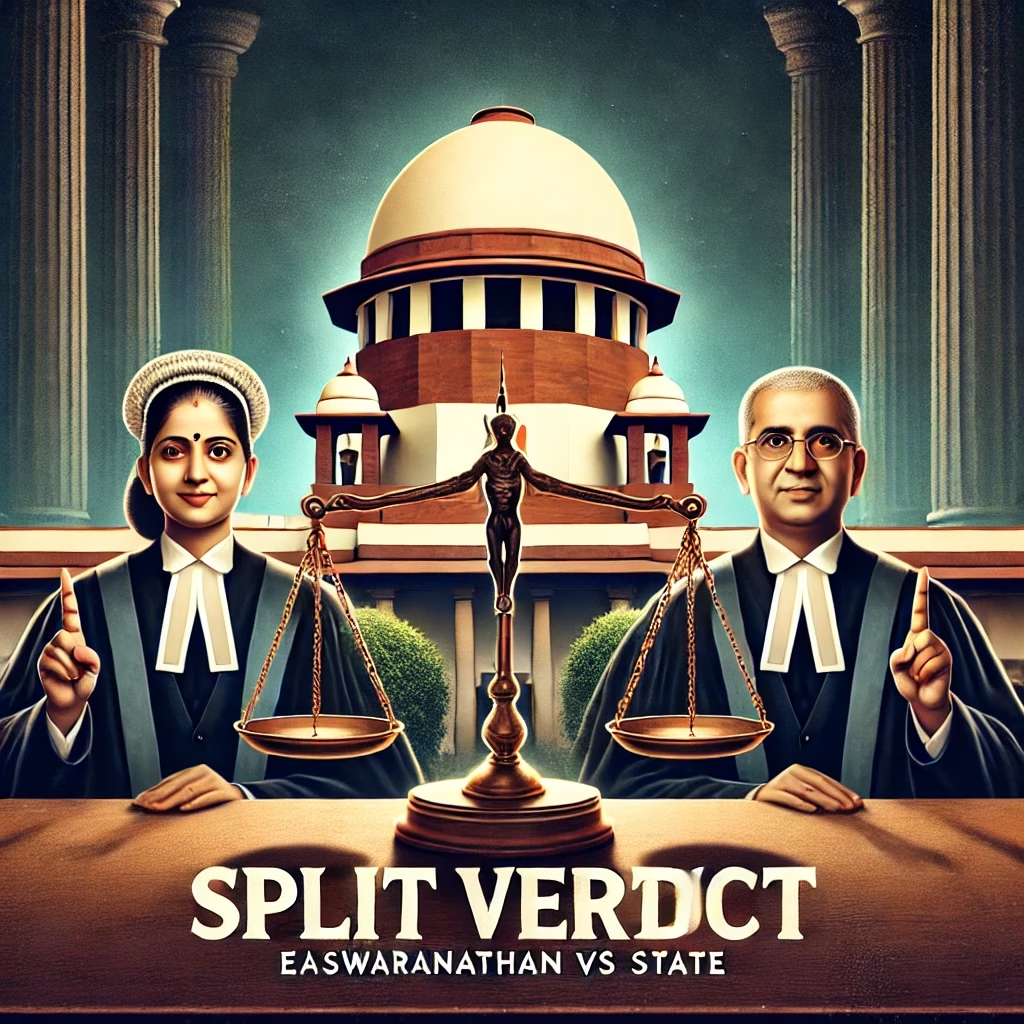Background:
The case arose from a special leave petition filed by N. Easwaranathan, one of the accused in a criminal case under the SC/ST (Prevention of Atrocities) Act, 1989 and IPC provisions. After the **Madras High Court** dismissed his criminal appeal, he filed a petition in the Supreme Court through Advocate-on-Record (AOR) P. Soma Sundaram, assisted by **A. Muthukrishnan. However, it was found that the petitioners had *not complied with an earlier direction to surrender*, and this material fact was allegedly suppressed by the advocates while approaching the Apex Court.
Legal Issue:
Whether the conduct of the advocates amounted to professional misconduct warranting disciplinary action and whether punitive costs or suspension was justified.
The Split Verdict:
Justice Bela M. Trivedi – Strict Disciplinary View*:
– Held both advocates responsible for **suppressing facts** and **misleading the Court.
– Directed that:
– AOR P. Soma Sundaram be suspended from the Supreme Court’s AOR Register for one month.
– Advocate A. Muthukrishnan be saddled with ₹1 lakh costs.
– Emphasized the duty of lawyers to maintain candour and honesty toward the Court.
– Stressed that seniors and AORs bear added responsibility to **uphold ethics and professional integrity.
Justice Satish Chandra Sharma – Liberal and Forgiving View:
– Acknowledged the lapse but called the proposed punishment excessive.
– Noted the remorse and unconditional apologies offered by both advocates.
– Highlighted that Sundaram hailed from a modest background, and such sanctions would be disproportionately harsh.
– Recommended leniency and highlighted the principle of restorative justice in disciplinary matters.
Operative Order:
“In light of the divergent views of the two learned Judges, the matter is directed to be placed before the Hon’ble Chief Justice of India for appropriate orders.” Order dated 17.04.2025
The matter will now be referred to a larger Bench or another Judge for resolution.
Legal Principles Enunciated:
– Duty of Disclosure:Lawyers must not withhold material facts, especially directions of prior courts.
– Professional Ethics:Suppression of facts may amount to misconduct, particularly when done by AORs responsible for the accuracy of pleadings.
– Judicial Discretion in Punishment: While the Court must preserve integrity, punishment must be proportional and consider the advocate’s conduct, background, and remorse.
– Split Bench Procedure:When judges differ in their opinions, the matter is placed before the Chief Justice to constitute an appropriate Bench.

